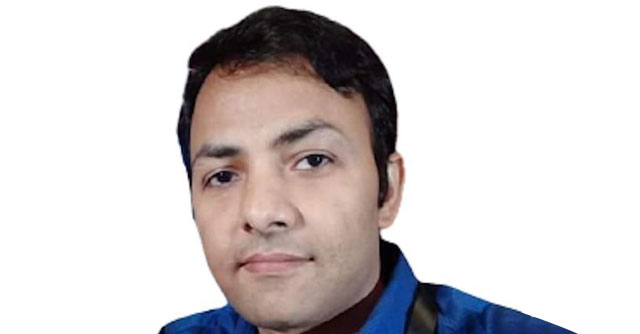
How Redcliffe labs increased productivity by integrating MongoDB


Redcliffe Labs, a diagnostics service provider that deals with a large volume and variety of customer data, was looking for ways to increase operational efficiency, reduce costs and improve the overall customer experience. The Noida-based diagnostic provider said that it migrated to a cloud database to scale up its operations and saw a 30% increase in productivity as well as a significant cost savings.
According to Prabhat Kumar, chief technology officer (CTO) Redcliffe Labs, the company migrated from a structured query language (SQL) database - a relational database management system or RDBMS - to a NoSQL database or a non-relational database that stores and accesses data using a document model, instead of storing data in a table, which is a collection of related data entries, having columns and rows.
Kumar, who joined the company in early 2021, added that in the initial days the dashboard could handle user health data and generate patient reports based on input from medical professionals, and even create searches against large databases.

“However, as we expanded to multiple cities, the volume of data and the number of data sources increased, causing gaps in data and insights and creating a powerful database for impactful and comprehensive insights,” he said.
The company already serves thousands of people daily, with more than 75 labs and close to 1500 walk-in centers across 180 cities.
Additionally, the wide accessibility of data within each business process posed a security risk, as sensitive information was vulnerable, creating a need to build a more secure and personalised view for each stakeholder. “Managing the data, especially the unstructured and unpredictable data, turned out to be cumbersome and we needed a flexible and scalable database management solution to get a single view of the massive and complex data set for patient medical report,” he added.

After a thorough evaluation, the company zeroed in on database firm MongoDB which they realised can offer substantial performance and cost advantages.
Kumar said, “Redcliffe Labs taps MongoDB Atlas’ flexible document mode to improve our Smart Health Report, a patient resource that provides a number of indicators and trackers to include interactive diagnostics reports, advanced health profiling and more detailed diagnostics and health alerts that are scalable, flexible and more secure.
Kumar mentioned that in the previous system, there were frequent crashes and down time, but with MongoDB Atlas we scaled seamlessly and it took no time to identify and fix issues.

Sachin Chawla, vice president and managing director, India at MongoDB explained that non-relational databases allow the data to be stored in ways that are more intuitive and easier to understand, or closer to the way the data is used by applications—with fewer transformations required when storing or retrieving using NoSQL-style APIs. Moreover, NoSQL databases can take full advantage of the cloud to deliver zero downtime. That said, developers can spend their time building diagnostics for patients, rather than managing databases.
Further, MongoDB Atlas offers a fully-managed cloud database that handles all the complexity of deploying and managing the deployments on the cloud service provider of your choice including Amazon Web Services (AWS), Microsoft Azure, and Google Cloud.
For Redcliffe, the transformation, which began nearly two years back, also helped reduce costs within the IT department and significantly increased the speed with which the development team can shape new futures. The diagnostics lab is also now even more resilient and was able to continue delivering quality healthcare throughout the pandemic as well.

The transformation has also been timely as Redcliffe has been on a mission to serve 500 million Indians by 2030 by building world- class laboratories.
Kumar said that the company is currently integrating MongoDB Atlas with elastic cloud, which is an open search and analytics engine for different types of data, including textual, numerical, geospatial, structured, and unstructured. “Elastic Cloud is easy to deploy, operate, and scale and the elastic search not only index millions of documents but can also perform queries across all those millions of documents and return accurate results in a fraction of a second,” he said.
Kumar also informed that Redcliffe has acquired Rajasthan-based Medicentre Polyclinic, a radiology specialist that would help a pathology firm like ours enter into radiology business performing CT scan, magnetc resonance imaging (MRI) X-ray, DNA sequencing and more. This means, there will be more data to be stored in the cloud.

The transformation is still in its early phases and the diagnostic firm has big plans on the horizon. Redcliffe have planned to further use Atlas Device Sync, which can sync data effortlessly between MongoDB Atlas and a mobile device, as well as incorporate Graph Query for a richer customer experience, said Kumar.
